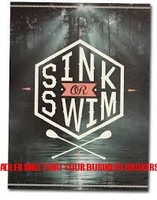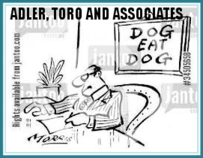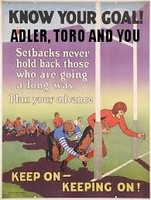
201 - 546 - 7154
OR
973 - 839 - 1112
ONLY MINUTES FROM NYC AND THE LINCOLN TUNNEL
iPHONE AND TABLET
USERS
Connect With Us directly by tapping on the number below
TIPS ON ESTIMATING BUSINESS START UP COSTS
Many business owners do not accurately estimate start up costs for their business. At the very least, this can cause the business owner quite a bit of stress. At the worst, it can prevent the business from ever opening, or cause it to quickly close down. Since each business will have it's own unique start-up costs, there is no universal method for estimating start up costs. The only sure method in existence is to ensure that you have included all of the costs associated with starting your specific business.
1. Start by listing and adding up all the equipment you think you need to start and run your business. Then, take that list and really think about each item, and mark off the items that can wait. Determine what equipment must be new, and what equipment can be bought used. Buy used items, that are in good shape, as much as possible. Determine what items can be leased, instead of purchased. Later, you will want to own all of your equipment outright, but leasing may be more beneficial in the beginning.
2. When calculating the costs of the physical portion of the business (the office or buildings), don't forget to add in fixtures, remodeling costs, and decorating costs, as well as delivery and installation fees for fixtures and equipment. If you are purchasing business property, make sure you include all fees associated with the purchase, including closing costs and taxes.
3. Include expenses for utility deposits, professional fees, and licenses and permits. These fees are often overlooked when estimating business start up costs. Don't forget the fees associated with incorporating your business.
4. When calculating advertising costs, don't forget the costs of logos, trademarks, and other art and graphics that will be used. Think about the costs related to your grand opening, and add these into advertising costs. Pre-opening advertising costs need to be calculated and added into the start-up costs as well.
5. Check on actual costs when possible. For instance, licenses and permits usually have fixed prices, as well as utility deposits. Since professionals usually charge by the hour, those costs can only be estimated.
6. When listing the start up costs for your business, separate recurring expenses, from non-recurring expenses. This will help you estimate your operating costs later on. Some non-recurring expenses may be the purchase of equipment, deposits, and remodeling costs. Recurring, or ongoing expenses may include professional fees, advertising costs, and salaries.
7. Think of ways that you can lower some costs. Call vendors and try to work out deals for lower costs. You should also consider lowering your own living costs, which will enable you to take a lower salary in the beginning.
8. Assume that all costs will be higher than you expected. It may be wise to add 1% - 5% to your final estimation.
9. Have your business plan written before coming to a final estimation for start up costs. Often, the business plan will bring more start-up expenses to light that were not thought of before. Be sure to include the cost of having the business plan written in your start-up costs as well.
10. Include operating capital for at least the first three to six months in your start-up costs. These costs may include salaries for yourself and your employees, rent, advertising, delivery expenses, supplies, utilities, insurance, taxes, maintenance, inventory, professional services, loan payments, and other expenses specific to your business.
Remember, there may be expenses that are specific to your business. Accurately estimating start-up costs takes quite a bit of thought and planning. It is often wise to go over your estimated start-up costs with an experienced accountant.
ADVANTAGES AND DISADVANTAGES OF BUYING A FSBO BUSINESS
FSBO "For Sale by Owner" is when the business owner tries to sell their own business or property for sale. Some of the advantages and disadvantages of buying a FSBO business for sale are:
ADVANTAGES
1. Price - FSBO businesses are likely to have a lower purchase price than those being sold with professional assistance. Typically, a business broker or agent will charge the business seller a predetermined percentage of the business purchase price as a fee.
2. Time - The sale process of a FSBO business is likely to be quicker as information is communicated directly between the buyer and seller without the involvement of a business broker or agent. The buyer and seller should have their accountants and legal advisors verify the financial information and purchase agreement.
DISADVANTAGES
1. Inaccurate Information - When purchasing a FSBO business it is often difficult to determine if everything you are being told about the business is true. Some business owners tend to lie or exaggerate their business profits. Having a business broker WHO IS A professional intermediary in place will help verify financial statements as well as the other important aspects of the business.
2. Price - There are many business owners who believe that their business is worth more than it actually is, and they expect to sell their business for a high price. Having a business broker, professional intermediary and accountant on your side can help you determine a fair price for the business.
3. Negotiation - In negotiations between buyer and FSBO seller, they may be times when negotiation is difficult and comes to a stall. With the advice of a third party such as a business broker or agent, negotiations may be easier and the broker can help to speed up the sale process.
4. Due Diligence - Before buying a business, the buyer must perform due diligence on the business, which is a thorough and complete investigation and review of the business. Due diligence could be more difficult when buying a FSBO business - a business broker with specific experience in a particular type of business can help with the due diligence process.
HOW TO BUY A BUSINESS - DETERMINING THE PURCHASE PRICE
Determining the value of a business is the stage of the purchase that requires Professional help, and therefore begins to involve you in Serious Costs. Unless you are happy with all of the issues, it would seem pointless to advance to this stage.
There are many books available on how to value a business. Most of them have masses of theoretical information, with formulae and graphs and reams of calculations. Most have not got the point that a Barber Shop has no value to a Plumber, but may have a lot of value to another barber, who wants to increase his own business.
Basically, the purchase price should be such that the business can allow you to repay your investment in a reasonable time, having regard to the risks and effort involved. This might vary from 4-5 years in the case of, say, a Post Office Agency, down to less than 1 year, in the case of a pizza parlor or DVD shop.
Manufacturing, service and wholesale businesses would generally fall somewhere in between, once again depending on the security, and level of assets involved.
In general, it would seem wiser to pay a little more for a sound business, than less for a "bargain" that could send you broke.
The total cost of acquiring a business should be taken into account, and can be divided into a number of components, covering both tangible and intangible assets.
TANGIBLE ASSETS
Freehold Property (if applicable): This can be valued by comparison with other similar property in the area. Take care that the business is paying rent, or allowing sufficient return to cover imputed rent.
Plant and Equipment: The book (depreciated) value may vary from the auction value, which may vary again from its "going concern", or current market value. This may occur if it has been subjected to accelerated depreciation, or expensed rather than capitalized. There is also the factor of installation, commissioning and tooling costs. Basically, plant and equipment in a profitable business is worth what you are confident it can earn for you, otherwise it is only worth resale value.
Stock: You should ensure that you only purchase good and salable stock, at the Vendor's landed cost. The amount of stockholding should be at a level commensurate with the demonstrated stock-turn of the business, and historical logistics considerations. Excess or obsolescent stock should only be purchased if the terms are favorable.
INTANGIBLE ASSETS
Intellectual Property: This is the value of licenses, leases, agreements, patents, processes, tooling and know-how, which are necessary to the successful operation of the business. Generally they would have cost time and money to accumulate, and would certainly cost time and money to duplicate. It is generally lumped in with "goodwill".
Goodwill: This is the difference between the value of the business on a "return-on-investment" basis, and the net value of the tangible and intellectual property assets. A business acquires an element of goodwill if it can demonstrate to your satisfaction a reasonable expectation of future super profits in excess of the value of the other assets, so that the return on the total investment in the business is financially viable.
Working Capital: The amount of money needed to operate and grow the business with reasonable confidence.
ADLER, TORO AND ASSOCIATES BUSINESS SERVICES
CONTACT
CARMEN




